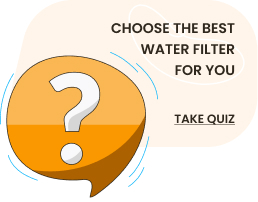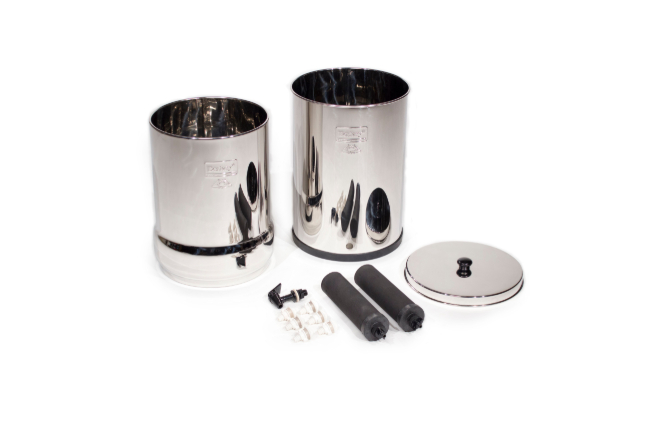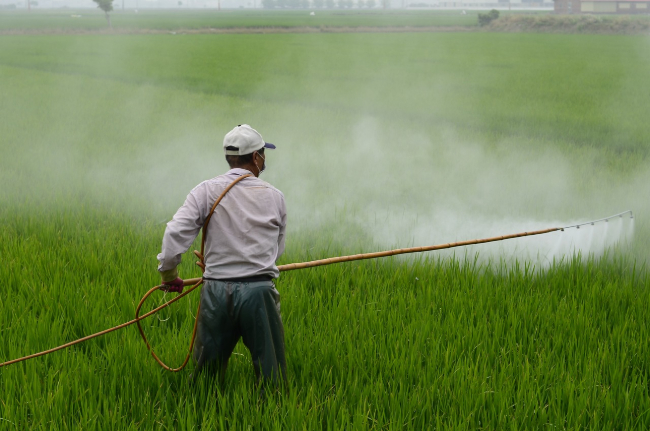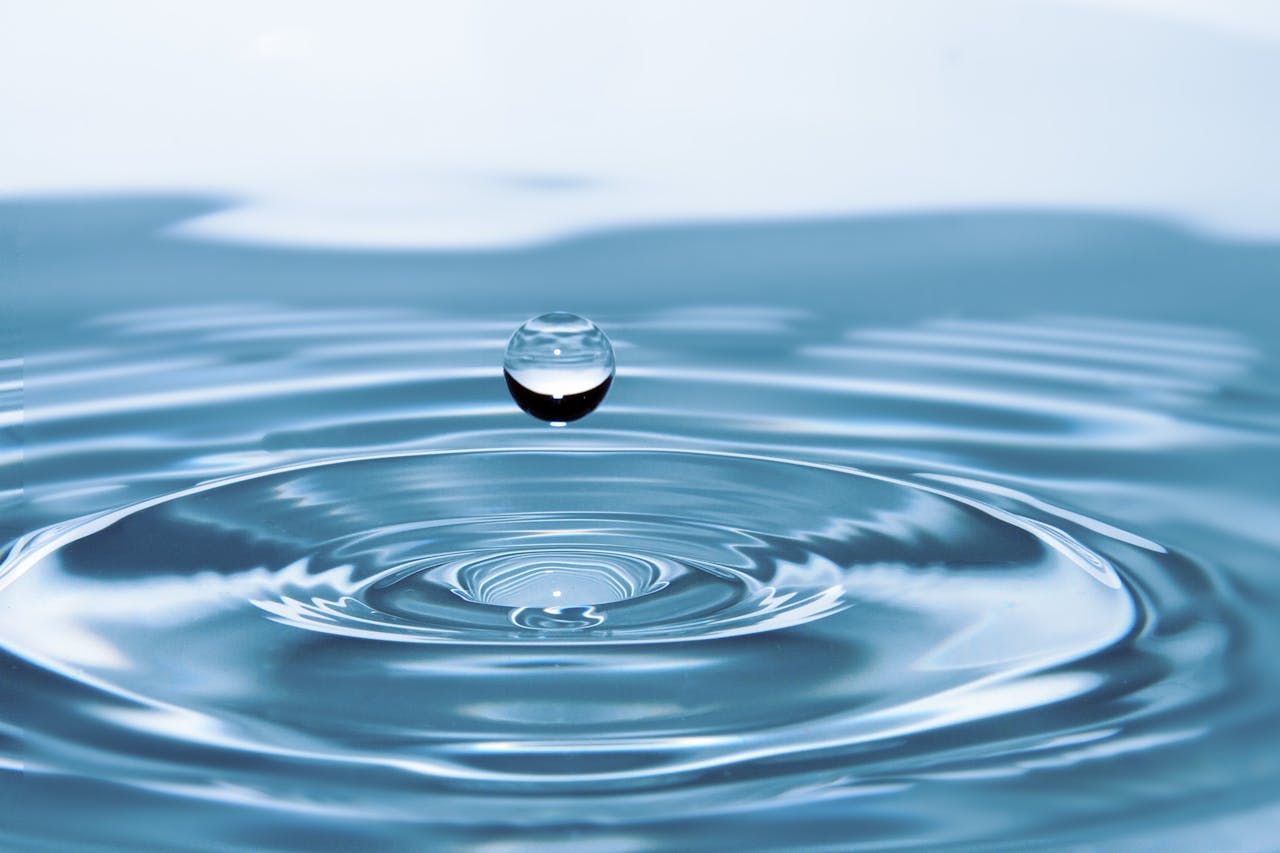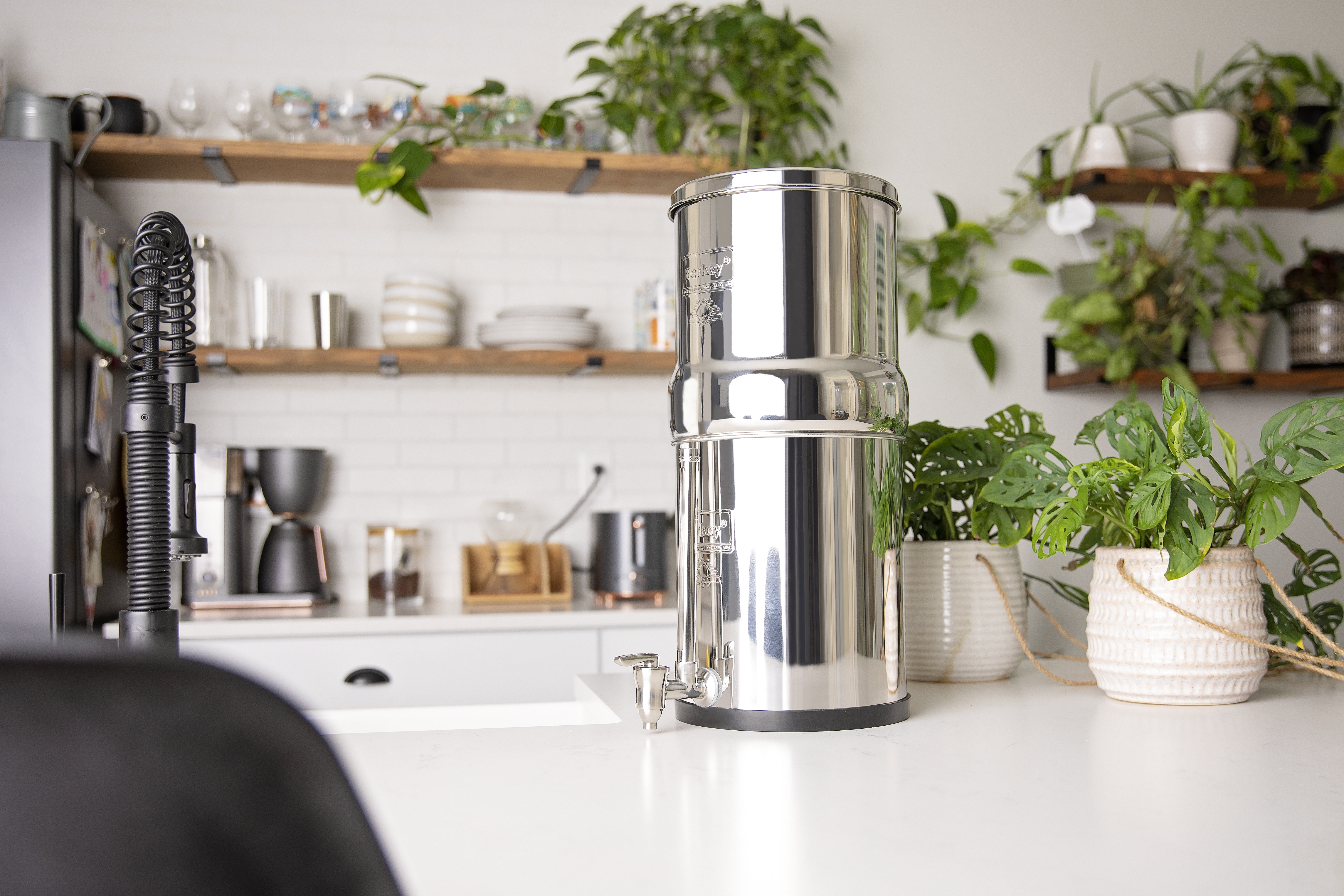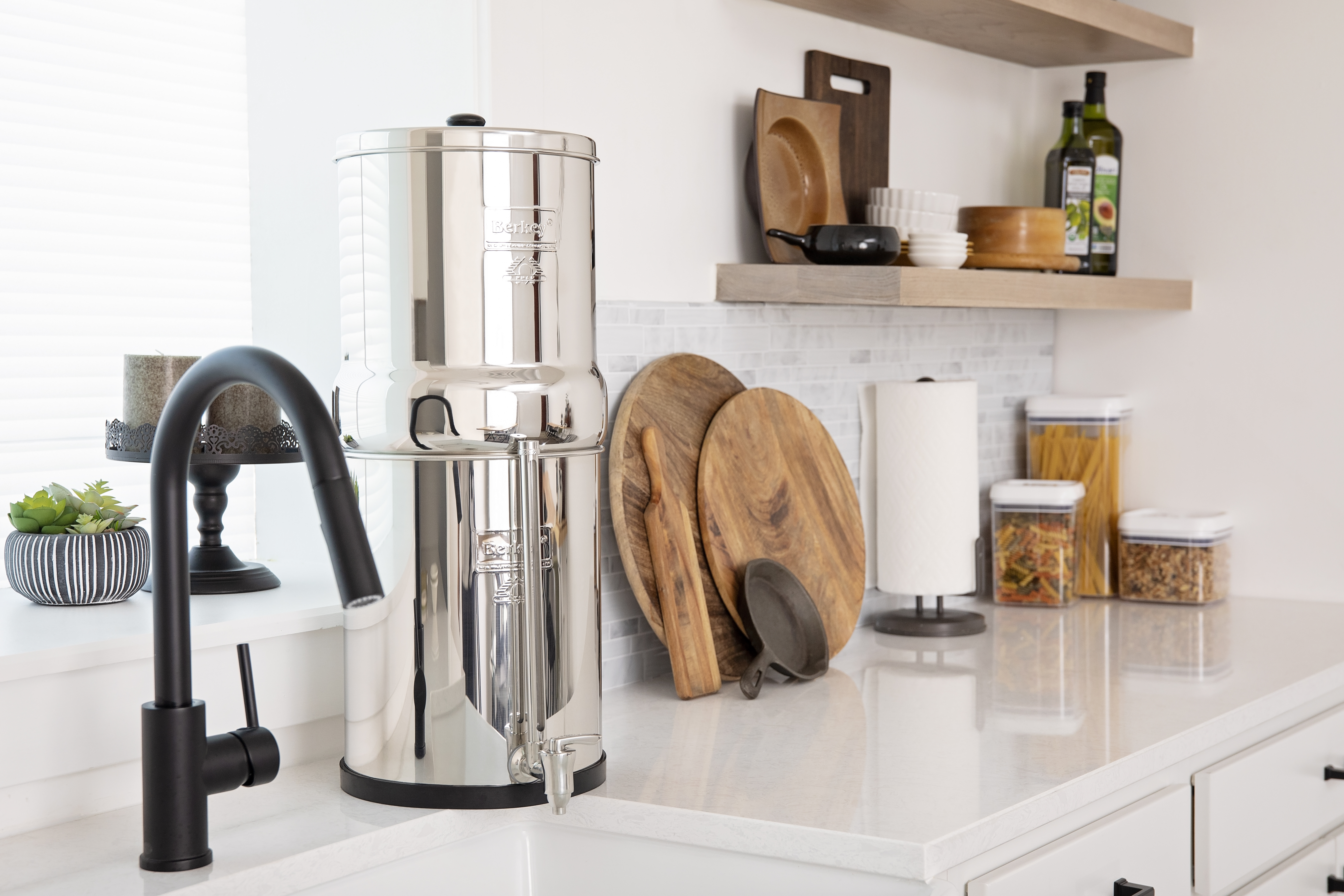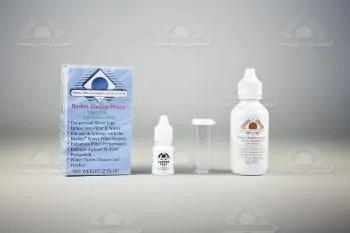In this article, you'll learn about:
- Why Would You Need to Store Filtered Water?
- How to Store Drinking Water for Short-Term
- Long-Term Drinking Water Storage
- Storing Water in Plastic Bottles
- 4 Tips for Storing Filtered Water
- Let's Sum it Up: How to Store Drinking Water?
Why Would You Need to Store Filtered Water?
Drinking filtered water offers many health benefits over unfiltered tap water, and is often the go-to water source during an emergency situation. If you have a home water filtration system, you may want to store an emergency water supply to ensure you have enough backup water should your taps run dry.
Storing an emergency supply of filtered water will ensure that you have a source of safe drinking water should your normal water supply be disrupted.
However, you may be wondering how long you can store filtered water. The storage duration for filtered water depends on several factors, including the storage conditions and the cleanliness of the container in which the water is stored. Some general guidelines to help ensure your filtered water remains fresh tasting and safe to drink are outlined below.
There are subtle differences between the methods used for short- and long-term water storage. With short-term water storage, clean water is typically consumed within a few days, whereas long-term water storage involves storing water for a few weeks or months.
How to Store Drinking Water for Short-Term
Water can be stored for short periods at room temperature or in the refrigerator, as per the guidelines below:
- Room Temperature: If kept at room temperature, it's best to use the water within 24-48 hours to minimize the risk of bacterial growth. It’s important to note that warm temperatures can encourage the growth of bacteria, while exposure to sunlight can stimulate algal growth in the water.
- Refrigerated: Filtered water can typically be stored in a clean, covered container in the refrigerator for up to 3-5 days. While the cool, dark environment will not encourage algal or bacterial growth, it’s important to ensure the container is covered to prevent exposure to mold or other contaminants that may be present on food items in the refrigerator.
Long-Term Drinking Water Storage
If you need to store filtered water for longer periods, ensure it's kept in a clean, tightly sealed food-grade container to prevent contamination. Store the container in a cool, dark place, away from direct sunlight and heat sources, to slow down the growth of any potential microorganisms.
Exposure to heat and sunlight can also degrade plastic bottles, allowing chemicals to leach from the plastic and affect the quality of the water. Consider using food-grade water storage containers and adding a small amount of water preserver if you intend to store water for extended periods (weeks to months).
You can also consider using Berkey’s Biofilm Drops, which inhibits the growth of bacteria and algae, extending the shelf life of stored water for up to five years.
Berkey BioFilm Drops
Storing Water in Plastic Bottles
The duration for which you can store water in plastic bottles depends on several factors, including the type of plastic, storage conditions, and the quality of the water when it is bottled. The following guidelines can be used as a rule of thumb for storing filtered water in plastic bottles:
- Single-Use Bottles (PET): Single-use PET (polyethylene terephthalate) bottles, commonly used for commercial bottled water, are not intended for long-term storage. They can leach chemicals over time and are more susceptible to degradation. It's best to use water stored in PET bottles within 6-12 months.
- Reusable Bottles (HDPE, LDPE, PP): High-density polyethylene (HDPE), low-density polyethylene (LDPE), and polypropylene (PP) bottles are more suitable for longer-term water storage. These plastics are more durable and have a lower risk of chemical leaching. Water can be stored safely in these bottles for 1-2 years, provided they are stored properly.
4 Tips for Storing Filtered Water
When storing water for drinking, the following best practices will ensure your stored filtered water remains fresh for longer.
1. Use Clean Containers
Ensure containers are thoroughly cleaned and sanitized before filling them with filtered water. Glass, stainless steel, or food-grade plastic containers are recommended. Use dedicated containers that are reserved exclusively for water storage to avoid cross-contamination.
2. Label Containers
Label the container with the date the water was filtered and stored to keep track of its age. This will allow you to use your stored water supply on a rotational basis by practicing a first-in, first-out system, using the oldest stored water first.
3. Don't Neglect Regular Checks
Periodically check stored water for any signs of contamination, such as cloudiness or changes in odor or taste. If you have any doubts about the water's quality after long-term storage, consider re-filtering it before use.
4. Take Care of Proper Hygiene
Always wash your hands before handling stored water or water storage containers to minimize the introduction of contaminants. Avoid touching the rim of the container or the inside of the lid when pouring water to prevent contamination.
Let's Sum it Up: How to Store Drinking Water?
Filtered water can be stored safely for short periods if kept in clean, covered containers in the refrigerator or at room temperature. For longer storage, use properly sealed, sanitized containers kept in a cool, dark place, and consider using a water preserver such as Berkey Biofilm Drops.
Following these best practices will help ensure your stored filtered water remains fresh and safe for consumption.
How Long Can You Store Filtered Water: Frequently Asked Questions
Why should I store filtered water?
Having a backup supply of filtered water can provide you with a source of safe drinking water in an emergency in the event that your water supply is disrupted for any reason.
What are the best methods for storing filtered water?
Depending on how long you intend to store it, water can be stored at room temperature, in the refrigerator, or in a cool dark place. For long-term storage, a water preserver can extend the shelf life significantly.
How long can I store drinking water at room temperature?
Drinking water can be stored at room temperature up to 24-48 hours.
How long can filtered water be stored in the fridge?
Drinking water can be stored in the fridge up to 3-5 days
How long can I store water in plastic bottles?
Water stored in single-use PET bottles should ideally be used within 6-12 months. For longer-term storage, use reusable HDPE, LDPE, or PP bottles, which can keep water safe for 1-2 years if stored in a cool, dark place.
How long can filtered water be stored in a cool dark place?
When food-grade containers that are properly sanitized are used, and a water preserver is added to the water, water can last for up to 5 years. Water has a far longer shelf life when a water preserver is added.
